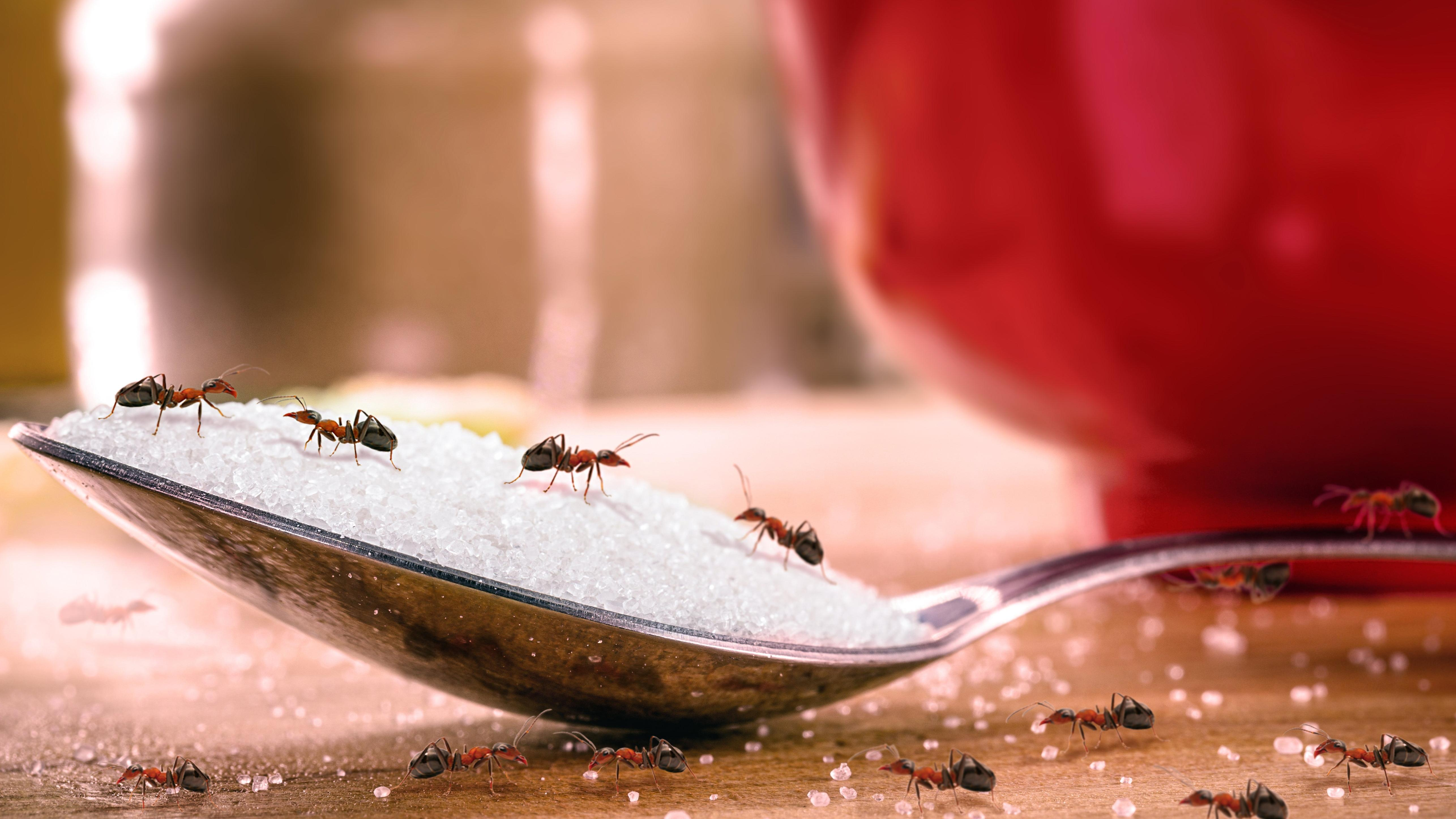How To Keep Bugs Out Of Your Kitchen
Summertime means more of these creepy crawlies will be looking for a way into your home.
It's officially open-all-your-windows weather here in Chicago, and in no room of the house does that feel better than the kitchen. The gentle breeze coming through as you cook over the stove, the smells of your creation wafting out to passersby on the street, the feeling of grilling without actually being outside. But with the good comes the pesky: it's bugs-in-the-kitchen season, too. With each cracked window and opened screen door comes the threat of a suddenly active horde of insects making themselves comfortable in your home, and more specifically, your kitchen.
But fear not! There are some easy and chemical-free ways to prevent these little guys from settling in, and equally simple ways to get rid of them if they do.
Insects to look out for in your kitchen
Depending on where you live, there may be regional creepy crawlies that make their way into your home, but for the most part, these are the bugs that will be most attracted to your kitchen.
- Ants. Can't you already picture the cartoon picnic with the ants marching one by one to steal whatever's in the basket? Ants are attracted to sweets and crumbs and will flock to them in the kitchen.
- Beetles. Check your pantry for various types of beetles. These guys feed off grains and are most likely going to settle in wherever you store your dry goods.
- Cockroaches. Much like ants, cockroaches come into your home in search of any foods that may be spilled on floors or countertops, and can easily squeeze into every nook and cranny of your kitchen. (Sorry in advance for the nightmares this image may cause.)
- Fruit Flies. As their name suggests, these bad boys are on the hunt for any fruits or vegetables left out for the taking.
- Moths. Another cabinet dweller, these winged creatures are less interested in grains and more likely to be found around dried fruit, nuts, and pet food.
- Silverfish. These squirmy creatures are attracted to dark, damp places, so you may want to check for them under your kitchen sink. They're also known to chomp on wallpaper and starched fabric, so keep an extra diligent eye if those are present in your kitchen.
A quick shout-out to the spider, a bug that you might find in your kitchen that you should absolutely just leave alone. Apartment Therapy reminds us that these eight-legged friends are most likely not going to harm you and in fact will act as one of your best defenses against all other pests.
How to prevent insect infestation
Your first line of defense is a clean kitchen. As noted above, most of these creatures are coming into your space because they have sniffed out some kind of food. Make sure to wipe up any spills and sweep up any crumbs left behind on floors and counters whenever finishing a meal. In your pantry, try airtight containers for your dry goods to keep aromas from enticing bugs and also to make it less likely that a beetle or moth will burrow into those containers. And if you're composting on your kitchen counter, consider moving that bin into your freezer. This will not only prevent odors that attract bugs, but add an extra barrier between the food waste and the pests hunting it down.
Essential oils are your best friends. Much like rodents, insects avoid peppermint, eucalyptus, lavender, and other scents. Just mix drops of the oil with vinegar and water in a spray bottle to make a chemical-free repellent. If you notice one specific problem area, soak some cotton balls in the oils and leave those out. A nice bonus: your kitchen will smell amazing even when you're not cooking in it.
How to get rid of fruit flies in your kitchen
For those pesky little fruit flies, use this old bartender trick: get a rocks glass or something around the same size, fill it up with something sweet like apple cider vinegar or red wine, cover the top with plastic wrap, and poke a few fly-sized holes in the plastic. If all goes correctly, flies will find their way into the makeshift trap and get caught in the liquid. Don't worry, they'll die doing what they love.
You'll also want to check for entry points, like tears in window screens, gaps in doorways, etc. If an infestation gets bad enough, call your local exterminator—if you're concerned about chemicals in your home, look into exterminators who specialize in nontoxic methods.
Whatever method you choose, you'll be able to open those windows without fear and get cooking in your bug-free kitchen.
